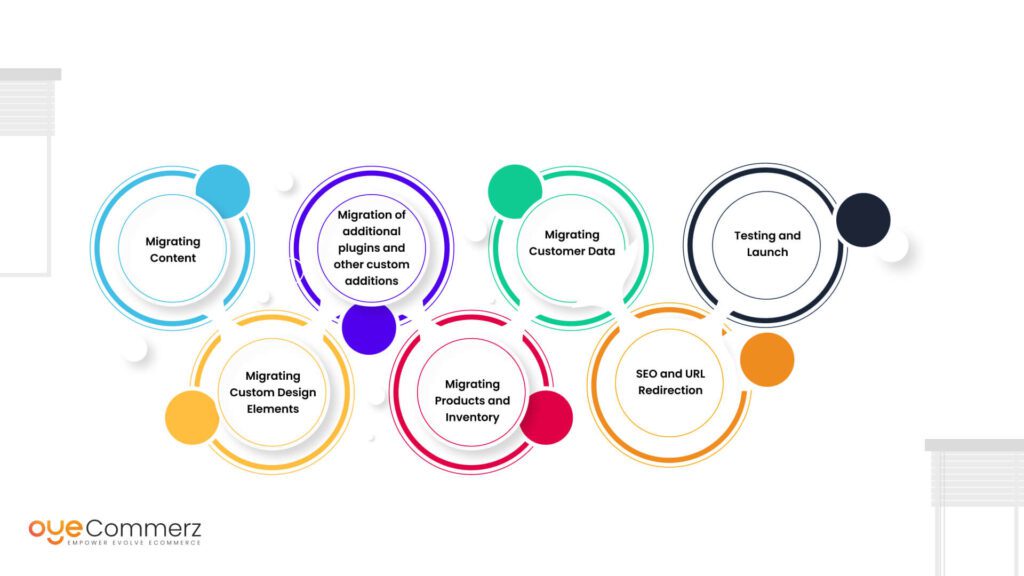In the dynamic sphere of eCommerce, choosing the optimal solution is vital for your brand’s growth. If you’re at the moment using WordPress and thinking about a migration to an alternative, you’re not alone. Many businesses are shifting to utilize Shopify’s robust capabilities, user-friendliness, and scalability. This guide will guide you on the process of migrating from WordPress to this platform smoothly, guaranteeing that you unlock your eCommerce potential.
Why Transition from WordPress to this platform?
Before starting the migration journey, it’s essential to understand why this shift can be advantageous for your digital storefront:
User-Friendly Interface: Shopify provides an user-friendly dashboard that streamlines store operations, enabling for non-technical users.
Flexibility: As your business expands, Shopify can accommodate greater traffic and transactions without compromising speed.
Integrated Features: Shopify includes built-in features for search engine optimization, analytics, payment handling, and additional functionalities, minimizing the necessity for numerous plugins.
Enhanced Security: With Shopify, you utilize robust security features that secure sensitive customer information.
Steps for a Smooth Migration
Migrating your online store from WP to Shopify includes multiple actions.
Here’s how to achieve a hassle-free transition:
Plan Your Migration Plan
Kick-off by outlining your migration plan. Pinpoint which components of your current site you wish to move, such as:
Product data
Client data
Purchase logs
Blog content
Select the Best Migration Package
Depending on your requirements, choose a migration package that suits your store. Migration experts delivers various choices:
Entry-Level Plan: Suitable for small stores with limited products.
Standard Migration Package: Appropriate for growing businesses with moderate demands.
Premium Migration Package: Excellent for big stores demanding custom customization.
Backup Your Data
Before starting the migration, make sure that you have a full archive of your WP site. This task is critical in situations where anything goes wrong during secure Shopify migration services the transfer.
Export Your Data from WordPress
Leverage tools or alternative solutions to extract key content from your WordPress site:
Items
Users
Orders
Articles
Migrate Information into Shopify
When you have your content extracted, utilize Shopify’s migration apps or specialized apps to transfer your data into your new store. Ensure that all data is accurately formatted and arranged.
Customize Your Shopify Platform
Following migrating information, tailor your Shopify platform’s design to align with your style. Think about engaging a specialist if you need advanced customization.
Establish Payment Gateways and Delivery Settings
Set up payment gateways and delivery choices in Shopify to create a seamless checkout experience for customers.
Adopt Search Engine Optimization Guidelines
To keep your online visibility during the migration:
Set up 301 link updates from old URLs to updated ones.
Update descriptions.
Adjust media and copy for better ranking.
Review Your Migrated Platform
Ahead of going live, thoroughly check your new platform. Look out for any broken links, payment processing issues, or untransferred content.
Launch Your Platform
Once everything is in order, it’s the opportunity to go live! Inform the transition to your users and invite them to discover the new features of your Shopify store.
Post-Migration Support
Even after launching your new store, continued help is key. Consider working with professionals who can guide with:
Technical support
Promotional campaigns
Improvement strategies
Conclusion
Migrating from WP to this platform can be a crucial decision for your digital business. By adopting moving your store to Shopify this guide and leveraging tools like those offered by OyeCommerz, you can achieve a smooth transition that improves your business potential. Adapt to the shift and discover the full capabilities of Shopify today!
